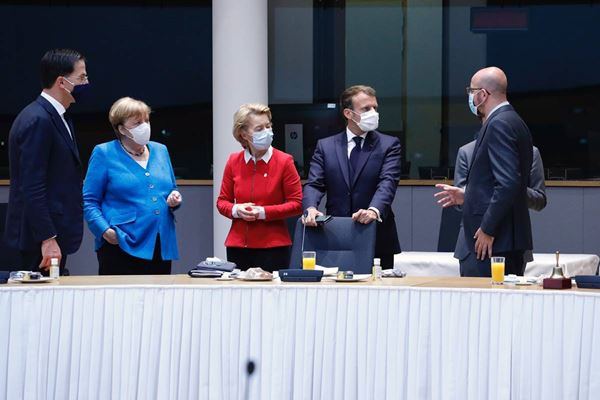We have heard it from everyone and everywhere: associations, spontaneous groups, non-governmental organizations, civil society, in short, has played a very important role in these months of the pandemic, in Italy and throughout Europe. The examples vary from additional health care in those countries where hospitals were overwhelmed with patients due to COVID-19, to the help given to the elderly, the main victims of the pandemic, which left them alone and vulnerable, to the monitoring of the actions on the funds spent during the crisis so that they were not wasted.
Yet, the finally acquired awareness that the “third sector” performed as an essential function in our disrupted communities has not been properly compensated by the EU recently adopted multi-annual budget. The Agreement on the Recovery Plan reached by the heads of the EU states and governments has averted the cut of almost 25% of the funds destined for the European third-sector initially envisaged by the Commission.
But the agreement has in no way taken into account the resolution of the Parliament which asked to triple the resources allocated to the Rights and Values Program, a fundamental tool to help civil society organizations from all over Europe.
Civil society is a crucial actor for the development and social stability of our continent, and ignoring the resolution of the Parliament puts at stake its survival. In some countries, civil society plays an increasingly decisive role in denouncing and fighting anti-democratic and xenophobic policies implemented by governments that will not be sanctioned in any way for their repeated violations of civil and political rights. In fact, the agreement reached in Brussels does not provide that the granting of European funds is subject to the respect of “democratic” rules and values, that should be shared by every state in a united Europe.
Even though organised civil society will play an increasingly central role, performing key functions abandoned by the states themselves and by the EU, the European budget has not provided any additional funds that could, for example, help those non-profit organizations in Poland, Hungary and in other European countries that are fighting to defend the rights of minorities.
Will the resources be sufficient for those who make independent journalism and who denounce the opaque relations between politics and business, or perhaps for those highlighting the conflicts of interest of the political class as it happened recently in the Czech Republic, whose Prime Minister Andrej Babis controls companies in sectors which could benefit enormously from the European Recovery Fund? Who will defend the so-called civic space – where civil society expresses itself, to exercise its primary role of “counterpower” as a watchdog of governments – which in many countries, especially in Central and Eastern Europe, is increasingly shrinking, as punctually denounced by Civicus in its annual reports?

But above all, even if the health emergency were not to come back, there is an imminent risk that thousands of civil society organizations will see the possibility of accessing European funds vanish, in a period that is already burdened by the contraction of donations and project opportunities since the ongoing economic crisis will become even heavier in the coming months.
This is very problematic due to the fact that both the economic crisis and the implementation of the Recovery Fund will make it even more essential to have organizations in good health, able to play their role without restriction and fears about their financial future.
In fact, there will be a huge need for those who can take care of all those marginalized categories that are already paying the consequences of the crisis with particular severity – the elderly, migrants, homeless, people with chronic diseases, low-income families, low-schooling individuals.
But no less important will be the watchdogs able to monitor the assignment of the substantial financial transfers, both in the form of donations and subsidized loans, arriving from Brussels which will benefit the states that were most affected by the pandemic. A reliable example, in this case, is Italy, whose government must promote maximum transparency in the management of the funds and avoid that they are dispersed in corruption or that they feed political-business clients.
If the premises are not very encouraging, the hope now is that the details of the new multi-annual European budget will be addressed during trialogues, the informal negotiations that see the three European institutions discussing in order to arrive at an effective decision.
In particular, it is desirable that the European Parliament highlights the importance of civil society in the progress of national and transnational communities and the enormous contradiction to which the EU is exposing itself. On one hand, it celebrates the role of civil society that the EU increasingly needs to defend the rule of law in the absence of other mechanisms which can guarantee the respect for it and which has been abandoned as a price for passing the agreement recently signed. On the other, it allocates limited funds to survive.
In order for the Parliament to become outspoken on this issue, we all need to mobilize, not only the whole organised civil society but also all beneficiaries and supporters who believe that civil society is an essential counterpower that we all need and that therefore adequate resources must be assigned to it. This is quite another matter if compared to the cuts foreseen by the Commission and the limited concessions of the European Council.
Image Source: European Council